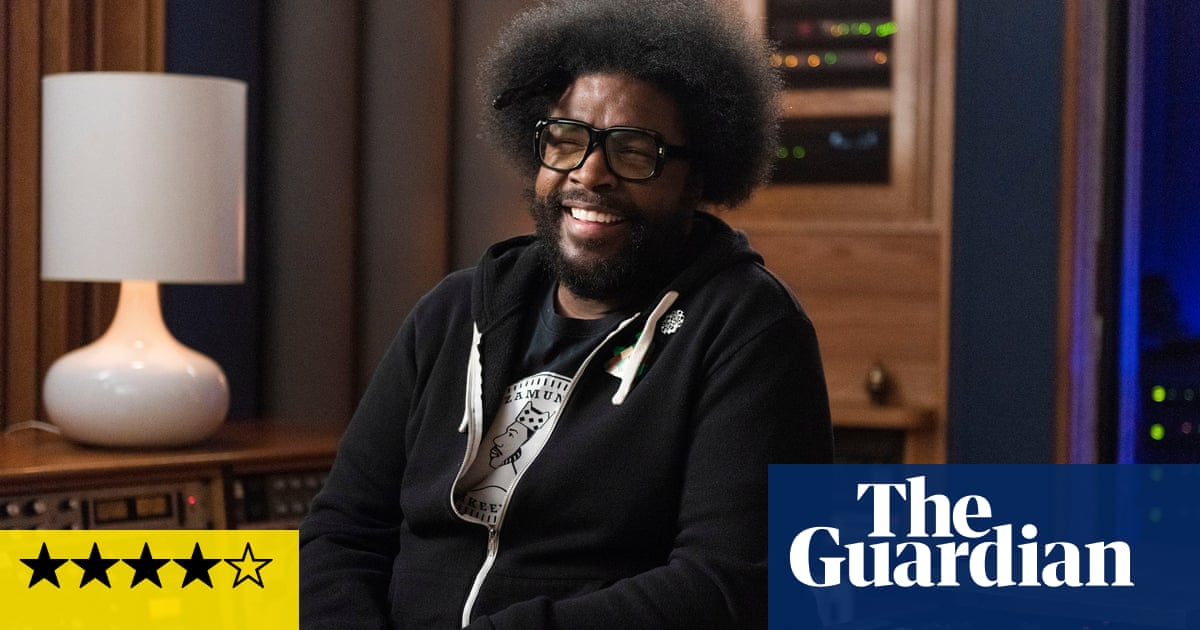
There’s been frequent occasion in recent years to remind ourselves why Kanye West – rapper, sometime Trump supporter and occasional reality TV star – was once taken seriously. It is, of course, because of his music, and work such as Jesus Walks. This gospel-elevated, soul-searching single from his debut album The College Dropout has been selected as the first song to warrant a deep dive in Hip Hop: The Songs That Shook America (BBC Four) a new six-part series that originally aired on the AMC network in the US.
Since each episode focuses on a different song and artist, they might have been ordered chronologically by release date (future programmes will feature 1984’s Rock Box by Run DMC and Kendrick Lamar’s Alright from 2015). The fact that they haven’t suggests a pleasingly idiosyncratic approach. The series’ illustrious roster of exec producers, including Questlove from the Roots and doc-making royalty Alex Gibney, is also promising. But then overhyped collabs are part and parcel of hip-hop marketing. It’s the challenge of this series to prove that, at least in some cases, all that hot air is justified.
John Legend does a lot of that work. Seated, as we often see him, by a grand piano and tinkling the keys as necessary, he explains the musical theory behind the huge impact of Jesus Walks: “All these sounds coming from different places makes it feel more cinematic!” Legend got his start in the biz accompanying Kanye on tour, and even – a lesser known fact – providing vocals on the single. (That bit that sounds like a weird robot flute? It’s actually an Auto-Tuned Legend falsetto). When West began his wayward tweet-a-thon in 2018, Legend was among the few of his peers to publicly challenge him. There’s none of that here, though. This is a time for praise only, apparently.
More critical is Roc-A-Fella Records co-founder Damon Dash. He recalls the almost comical levels of self-belief that saw West (literally) jumping up and down for Jay-Z’s attention in his early days at their label: “I thought it was funny that, y’know, when I’d be asking to hear beats, he would start rapping. I was like, ‘What is this? You buggin!’” It seems it was only in retrospect that Dash came to appreciate West’s particular talents: “When you’re confident in what you’re saying, regardless if it’s dumb or not, people like a person with a point of view.” Indeed they do, but this doesn’t really explain when and how, exactly, such self-aware showmanship segued into “slavery is a choice” rants.
Note, though, that West wasn’t the only one convinced of his destiny. Music video director Coodie Simmons wouldn’t have spend so long following him around with a camera if he didn’t think the kid had something. A good job he did, too, because his footage gives fascinating glimpses of a 17-year-old Kanye, looking preppy in polo shirts, backpacks and wire-framed glasses – the “college dropout” look was no PR confection. There’s also lots of very touching home video featuring West goofing around with his late mother, theacademic Donda West. It’s unsaid – but strongly implied – that her death in 2007 had a profound effect on West professionally, as well as personally. Back in the Jesus Walks era, when Kanye compared himself to Christ, he did it in a classy, understated way, see. It was counter-balanced by the genuine humility and inward-looking spirituality of someone really going through it. Way before Drake got up in his feelings, at the height of the “bling” era, Kanye was creating space in rap for authentic emotion.
There are markedly fewer old white guys called Brian than in the standard BBC Four music doc, but otherwise this offers everything you’d expect: biographical details, a close textual analysis of the lyrics, and the making-of story told by key players. It’s this last bit that throws up a point that’s surely central to any assessment of Kanye West’s genius: he didn’t come up with the best bit of Jesus Walks – he didn’t even source it.
That phenomenal chorus comes from a 1997 recording of gospel standard Walk With Me, performed by the ARC Choir and arranged by jazz musician Curtis Lundy. Sampling is integral to hip-hop, but in the context of millionaire rappers and non-profit choirs for recovering drug addicts, ethical questions are raised, which this documentary could have been ideally placed to address. At the very least, please tell us: did the man get his cheque?
from WordPress https://ift.tt/3adkXSo
via IFTTT






No comments:
Post a Comment